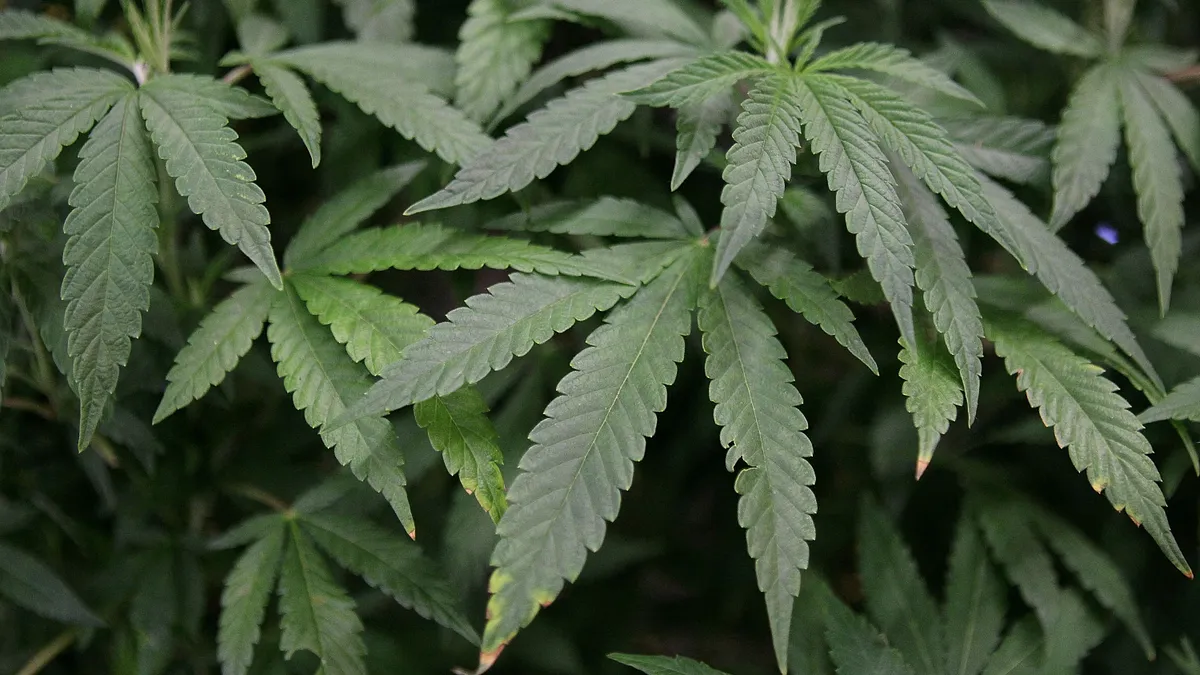Senate Democrats made good on their promises to introduce a comprehensive cannabis reform bill this week, unveiling draft legislation Wednesday that would remove cannabis from the federal list of controlled substances and expunge federal nonviolent marijuana crimes.
But the draft bill could become a setback for the future of the SAFE Banking Act, legislation that provides protections for banks that service the industry, after lawmakers said their comprehensive reform would take priority over the more narrow banking bill.
During a press conference announcing the Cannabis Administration and Opportunity Act (CAOA), the bill's sponsors, Senate Majority Leader Chuck Schumer, D-NY, Sen. Cory Booker, D-NJ, and Sen. Ron Wyden, D-OR, were asked about the status of the SAFE Banking Act in light of the newly unveiled discussion draft.
Schumer said the SAFE Banking Act, which was introduced in the Senate in May, solves only a fraction of the cannabis issue.
"The banking bill only deals with a small part of this, but not what needs to be done. We need a broad comprehensive bill," Schumer said.
Booker offered a more pointed response to questions about the bill's future in the Senate.
"I don't know about other members of the Senate, but I will lay myself down to do everything I can to stop an easy banking bill that's going to allow all these corporations to make a lot more money off of this, as opposed to focusing on the restorative justice aspects," he said.
The SAFE Banking Act, which would provide protections to financial institutions that offer services to marijuana-related businesses, passed in the House in April, and has garnered support from bank trade groups and cannabis industry stakeholders.
Banks have largely refrained from servicing marijuana-related businesses due to cannabis's classification as a Schedule 1 drug. As a result, many such businesses deal primarily in cash, making them targets of theft, cannabis reform advocates have said.
Some industry observers appear split on whether they believe the SAFE Banking Act would still be necessary, if the CAOA were to pass.
William Bogot, co-chair of the cannabis law practice group at Fox Rothschild LLP, believes the draft bill, should it pass, would obviate the need for the SAFE Banking Act. The CAOA, however, faces an uphill battle to become law in its current form, he said.
The bill's sponsors say it doesn't have enough votes to pass the Senate, and are seeking input on the draft legislation by Sept. 1.
"The Discussion Draft was intended as an overshooting wish-list to start the negotiation and ensure social equity provisions are at the top of the list," Bogot said in an email. "That makes sense, but the Discussion Draft will be negotiated for a long time, both before it is ever introduced as a bill and in both houses."
Bogot said the SAFE Banking Act is not as controversial and disputed as the CAOA by either party and would provide immediate relief.
"As such, the SAFE Banking Act should be passed immediately as an incremental step toward a more comprehensive law such as the Discussion Draft," he said. "I'm sympathetic and support Senator Booker's goals, but I regret the SAFE Banking Act is being sidelined. To me, the SAFE Banking Act is not just about money per se, it is also about safety for those carrying around large sums of cash and the ability of cannabis operators to offer federally qualified retirement plans for their workers."
"While politicians acknowledge that the challenges of decriminalization and commerce are intertwined, when they argue that one has to happen before the other is exactly why we still don't have reform."

Kevin Hart
Founder and CEO of Green Check Verified
Kevin Hart, founder and CEO at Green Check Verified, a firm that provides cannabis banking and advisory services to financial institutions, argues that any change to the federal status of cannabis, which the CAOA seeks to do, only amplifies the need for the SAFE Banking Act.
Under the bill, regulatory responsibility of the drug would be moved from the Drug Enforcement Agency (DEA) to the Bureau of Alcohol Tobacco Firearms and Explosives (ATF), the Food and Drug Administration (FDA) and the Alcohol and Tobacco Tax and Trade Bureau (TTB), allowing the federal government to collect taxes on it. Some of that tax revenue will go to grants that reinvest in communities impacted by cannabis prohibition.
Hart said this additional set of taxes, on top of state taxes, will push more illicit market activity, "putting the Treasury Department and financial institutions in the same dilemma they face today."
"How do they know that 'good money' (legal sales) is entering the banking system and that the 'bad money' (illicit sales) is staying out?'" he said in an email. "No matter what comes of the House, the Senate, or what ultimately will be a hybrid set of reforms, we are at the Bank Secrecy Act (BSA) low bar today, meaning that the SAFE Banking Act should happen first, not after."
Hart called Booker's comments that he would block any cannabis banking legislation before comprehensive reform is passed "politics, pure and simple, on both sides of the aisle."
"While politicians acknowledge that the challenges of decriminalization and commerce are intertwined, when they argue that one has to happen before the other is exactly why we still don't have reform," he said.
While adding that he supports comprehensive cannabis reform legislation, Rep. Ed Perlmutter D-CO, the main sponsor of the House-passed SAFE Banking Act, urged the Senate to move on the banking bill.
"I look forward to working with my colleagues in the House and Senate on comprehensive cannabis reform legislation, but I urge the Senate to take immediate action to pass the bipartisan SAFE Banking Act to reduce the significant public safety risk threatening our communities," he tweeted Wednesday.























